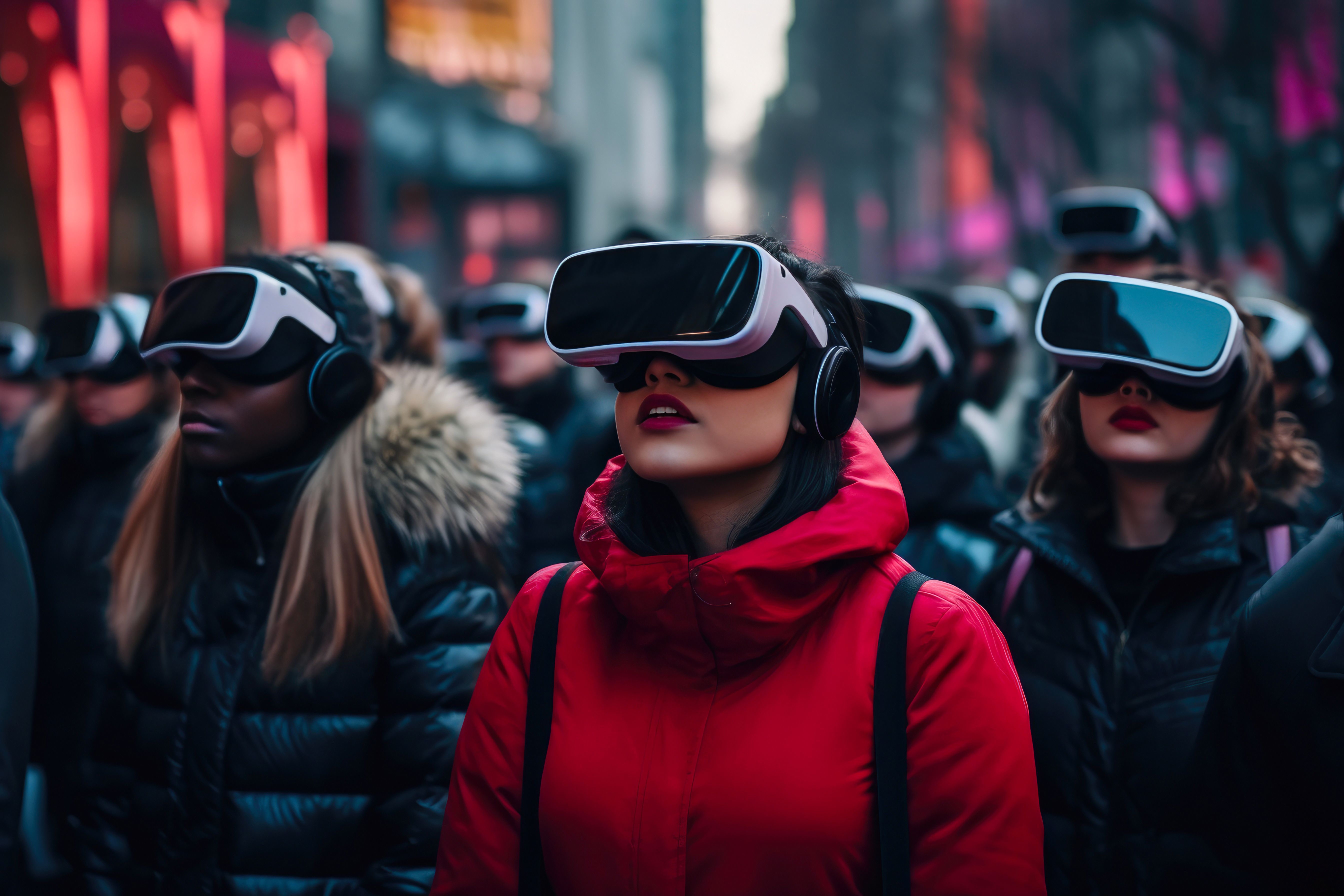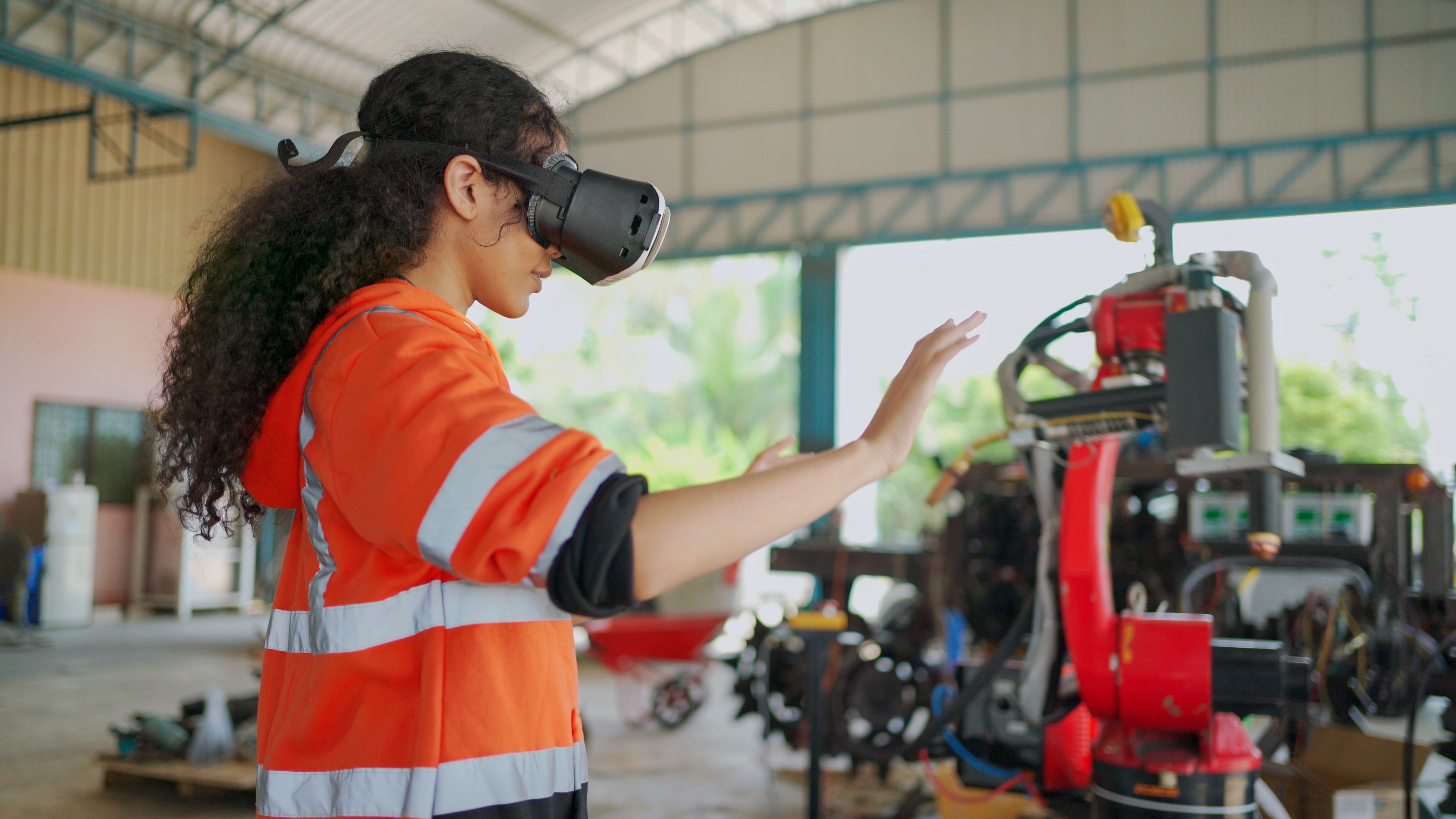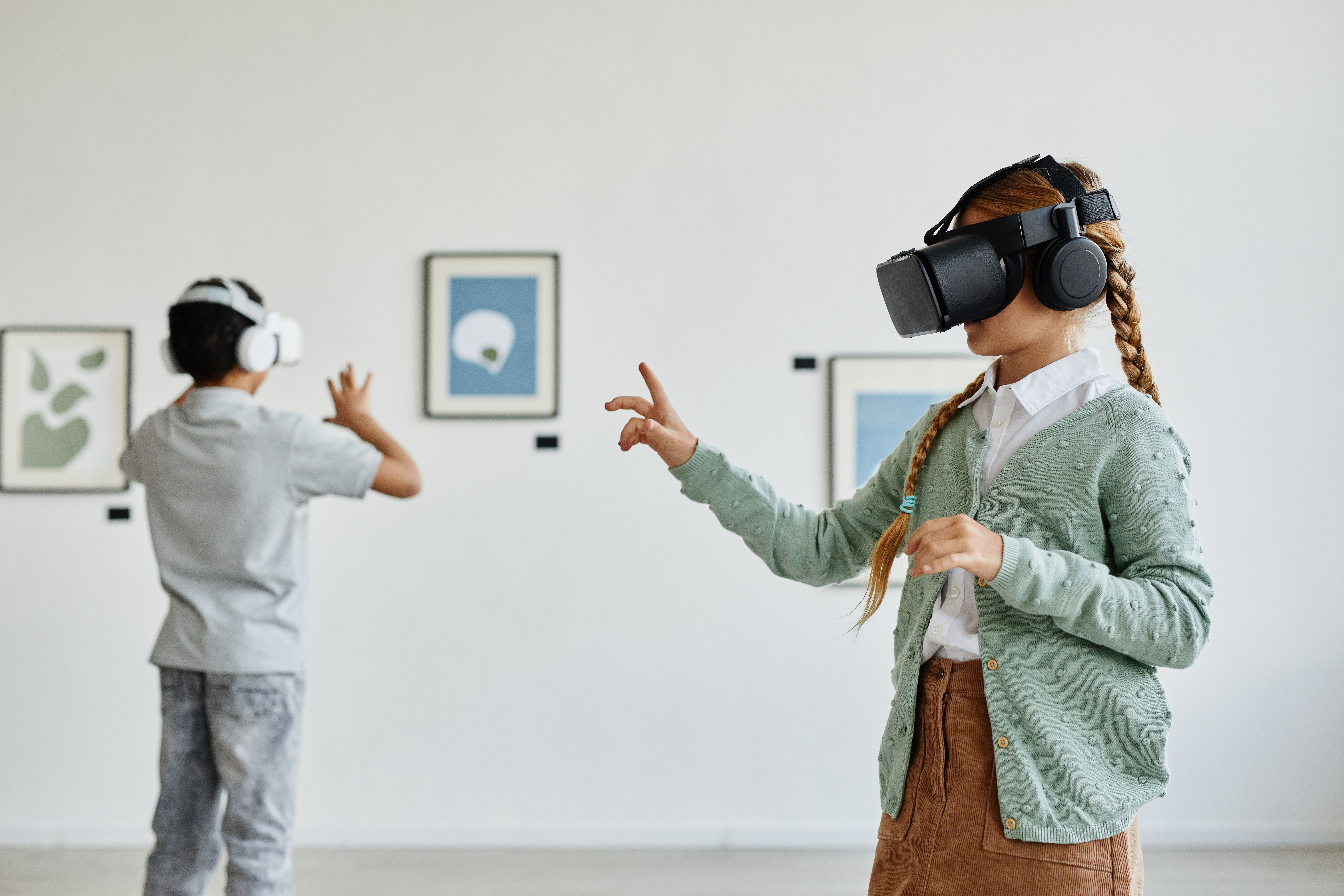Virtual reality (VR) has transcended its origins in science fiction and is now a tangible reality. This transformative technology encompasses a wide range of devices, including VR headsets and sensor-equipped gloves. VR is progressively integrating into our daily life, shaping entertainment, businesses, and society. The potential of virtual reality technologies is limitless when it comes to creating an inclusive society since it can redefine access to cultural expressions. The intention of this blog post goes beyond the exploration of technical aspects of VR devices. We want to delve into the deeper impact of these devices on society and culture.
Demystifying Virtual Reality
Virtual reality is an exciting technological advancement that recreates a three-dimensional, lifelike environment, immersing users in a digital world that feels as real as our physical one. The core concept behind VR es to create an authentic experience that tricks the senses: sight, sound, and, occasionally, touch.
The benefits of VR technology span a wide range. Virtual reality is not just about gaming. It comprehends how we absorb knowledge, perform tasks, and interact with others. It also offers unprecedented opportunities for remote collaboration, interactive education, therapeutic applications, and much more.
Delving into the realm of VR devices reveals a diverse array of options, each providing unique approaches to immersive experiences. For example, products like Meta Quest 2 or the Valve Index Full VR Kit employ headsets, hand controllers, base stations, and advanced sensors to create exceptional quality immersive VR experiences.
The utility of virtual reality extends across numerous industries. In gaming, VR transports players into de game, offering a level of immersion unattainable in traditional gaming. Also, in education, VR can transport students to ancient Athens or Mesopotamia.
Additionally, healthcare professionals use VR for therapy and surgical training. At the same time, real estate agents and retailers offer tours and create virtual stores to allow buyers to explore the full potential of what they offer.
This is just the beginning. VR has been a promising tool for creating fairer, inclusive healthcare, education, and journalism. Are you still wondering what is the transformative power of VR for societies? Let’s take a closer look at it.
Virtual Reality: A Catalyst for Societal and Cultural Transformation
Today, virtual reality is changing societies and cultures, serving as a catalyst for transformative change. Let’s explore the fields that have already experienced the profound impact of VR technologies.
Education and Virtual Reality
In the realm of education, virtual reality has the potential to offer immersive, interactive experiences that enhance student engagement and understanding. By bridging physical and digital worlds, VR can provide learning experiences in a safe and controlled manner.
For instance, VR technologies can be used in virtual field trips to help students understand aerospace and more. Also, these virtual tours are helpful when it comes to teaching art, history, and sciences.
Healthcare and Virtual Reality
Virtual reality technologies offer many advantages and benefits to both patients and healthcare providers. According to Anthony Villanueva, VR can be used in medical education and telemedicine.
In the first case, VR can help medical students to learn the necessary skills to practice surgery in a digital setting. Additionally, virtual reality can be used in telemedicine to provide a medical diagnosis when a patient's physical presence in the healthcare institution is impossible.
Real Estate and Virtual Reality
VR technologies also reshaped the real estate industry. For instance, agents can provide customers with solid presentations of what their prospective property will look like.
Moreover, virtual reality is beneficial in real estate marketing. Agents can showcase properties and allow prospects to observe their dream homes' interior design.
Retail
VR's contributions to the retail industry focus on enhancing customer experiences and interactions. Virtual reality devices enable retailers to offer users immersive shopping experiences in the digital world, gaining a competitive edge.
Retailers can use VR technologies for marketing purposes and create immersive showrooms. IKEA's virtual reality showrooms are one example of how VR devices change how we buy and perceive products.
The Impact of VR Devices on Society and Culture: Inclusion and Diversity
The impact of virtual reality devices extends beyond just entertainment and industry and has brought about significant changes in societies and cultures. Let's discuss it!
The Democratization of Cultural Diversity
Technological advancements have yielded a profound and far-reaching effect: democratizing access to educational and cultural initiatives. By dismantling barriers and forging novel pathways, VR technology has fundamentally altered the way individuals engage with educational resources and diverse cultural experiences.
This transition empowers individuals from all backgrounds to pursue knowledge, embrace cultural diversity, and partake in enriching activities previously within reach only for a privileged minority.
The rise of VR has introduced an immersive approach to encountering art, music, and historical events, precipitating a paradigm shift in our engagement with these cultural aspects.
From virtual museum tours enabling accessible art appreciation to virtual concerts providing front-row experiences within one's own home, VR transcends geographical and financial limitations, democratizing access to cultural enrichment.
Furthermore, virtual reality wields the remarkable ability to offer inclusive entry to cultural policies and initiatives without the necessity for physical travel. Envision a world where individuals can engage in global festivals and embark on cultural exploration, all from the comfort of their residences.
With VR, geographical barriers no longer exist, permitting people from various corners of the world to unite and encounter diverse cultures firsthand. This immersive involvement can foster a more profound comprehension and admiration for distinct cultures, ultimately advancing global unity and intercultural harmony.
Takeaway
The emergence of virtual reality has unquestionably inaugurated a new era of technological innovation. As we've extensively discussed in this post, the impact of VR devices goes beyond entertainment, reaching into diverse industry sectors and societal norms.
Explore the possibilities of VR devices. Whether you're a consumer, an industry pioneer, or simply curious, your engagement with VR contributes to our journey toward a more inclusive, accessible, and technologically advanced society.


